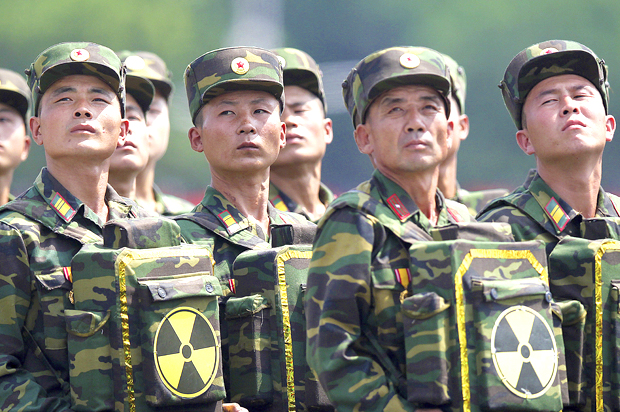New reports from sources in South Korea suggest that there is plausible evidence to believe that the North Korean government is in possession of Anthrax.
CNN reported on Dec. 27 that South Korea’s Blue House — shorthand for their executive branch — was “forced to deny” reports that President Moon Jae-in, and other South Korean officials, had been vaccinated against anthrax. Instead, Spokesman Park Soo-hyun said that the South Korean public health agency, the Centers for Disease Control and Prevention, bought 1,000 of anthrax vaccinations. Those vaccinations arrived in November, and were intended for civilians in case of a bioterrorism attack. Supposedly, the Blue House “had bought 350 doses of anthrax vaccine to counter accidental exposure,” though their spokesperson “said it was ordered by the previous government led by former President Park Geun-hye after an incident in 2015.” According to a separate report, the U.S. military has exported 15 samples of the disease to South Korea since 2009, which accidentally exposed as many as 22 Koreans in 2015.
This CNN report arrives shortly after the Trump administration announced it would sanction two North Korean officials who were supposedly involved with the country’s missile program; those sanctions mean those officials can no longer conduct business with anyone in the United States. Moreover, a separate report yesterday alleged anthrax antibodies were found in a North Korean soldier who defected to South Korea. The report from United Press International (UPI) said that the soldier, who hasn’t been identified, was confirmed to have developed an immunity to the deadly infection, suggesting that the soldier was either exposed or vaccinated. South Korea’s National Intelligence Service couldn’t confirm this report with CNN.
Anthrax is a rare but deadly infection caused by a bacterium. According to the Center for Disease Control and Prevention, all types of Anthrax infection can cause death if they are not treated with antibiotics like doxycycline or ciprofloxacin. Anthrax is not contagious, so it can’t be passed on like a cold or flu; however, it can be distributed subtly into powders, sprays, food, and water, which makes it an appealing bioterrorism weapon.
These developments come a mere week after a Bloomberg report claimed that North Korea was testing loading Anthrax onto its intercontinental ballistic missiles (ICBMs). The report said that tests were being done to observe whether the pathogen could withstand the high temperatures associated with Earth re-entry. The information was passed on by a source associated with Japan’s Asahi newspaper who had connections to South Korea’s intelligence services.
The U.S. has had its own Anthrax bioterrorism scares. In 2001, one week after the 9/11 attacks, anonymous letters concealing Anthrax spores were sent to congressional offices and media companies. Five people died from inhaling the spores.


